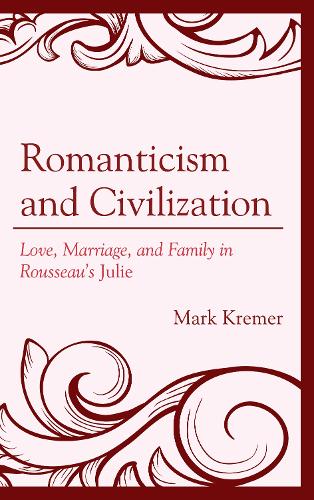
Romanticism and Civilization: Love, Marriage, and Family in Rousseaus Julie
(Hardback)
Publishing Details
Romanticism and Civilization: Love, Marriage, and Family in Rousseaus Julie
By (Author) Mark Kremer
Bloomsbury Publishing PLC
Lexington Books
18th May 2017
United States
Classifications
Professional and Scholarly
Non Fiction
Politics and government
Feminism and feminist theory
843.5
Physical Properties
Hardback
128
Width 161mm, Height 241mm, Spine 16mm
381g
Description
Romanticism and Civilization examines romantic alternatives to modern life in Rousseaus foundational novel Julie. It argues that Julie is a response to the ills of modern civilization, and that Rousseau saw that the Enlightenments combination of science and of democracy degraded human life by making it bourgeois. The bourgeois is man uprooted by science and attached to nothing but himself. He lives a commercial life and his materialism and calculations penetrate all aspects of his existence. He is neither citizen, nor family man, nor lover in any serious sense: his life is meaningless. Rousseaus romanticism in Julie is an attempt to find connectedness through the sentiments of private life and wholeness through love, marriage, and family.
Reviews
In Romanticism and Civilization, [there] is a reader and imitator of Richardson and Prvost, a would-be stoic and Platonist, a novelist wise enough to separate his novel from politics, and a writer who manages to synchronize the conservative values of Christian piety, aristocratic honor, and patriarchal authority in Julie. * European Romantic Review *
Author Bio
Mark Kremer is associate professor of political science at Kennesaw State University.
